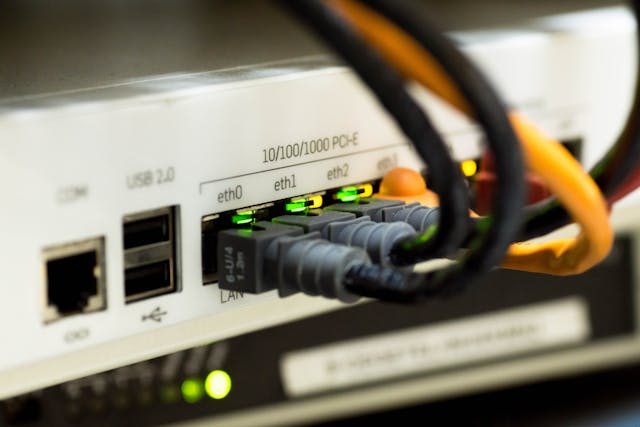In today’s interconnected world, safeguarding digital assets has become more critical than ever. Firewalls serve as a fundamental component in the defense against cyber threats, acting as gatekeepers between trusted internal networks and untrusted external entities. By meticulously monitoring and controlling network traffic, firewalls provide a robust shield against unauthorized access, data breaches, and various forms of cyberattacks. This article delves into the multifaceted benefits of implementing firewalls, highlighting their indispensable role in modern cybersecurity strategies.
1. Enhanced Network Security
At the core of a firewall’s functionality is its ability to scrutinize incoming and outgoing traffic based on predefined security rules. This vigilant monitoring ensures that malicious data packets are identified and blocked before they can infiltrate the network. By establishing a barrier against external threats, firewalls significantly reduce the risk of unauthorized access and potential data breaches, thereby preserving the integrity and confidentiality of sensitive information.
2. Access Control and Policy Enforcement
Firewalls empower organizations to define and enforce access policies tailored to their specific security requirements. By configuring rules that permit or deny traffic based on criteria such as IP addresses, domain names, protocols, or ports, firewalls ensure that only authorized users and devices can interact with the network. This granular level of control is essential for maintaining a secure environment, especially in organizations where data sensitivity and regulatory compliance are paramount.
3. Protection Against Malware and Cyber Threats
The digital landscape is rife with malicious software designed to exploit vulnerabilities within networks. Firewalls serve as a frontline defense by detecting and preventing malware from entering or spreading within the system. Advanced firewalls employ techniques such as deep packet inspection and intrusion prevention systems to identify and neutralize threats in real-time, thereby safeguarding the network from viruses, worms, ransomware, and other malicious entities.
4. Monitoring and Logging Network Activity
Comprehensive visibility into network activities is crucial for identifying anomalies and potential security incidents. Firewalls offer robust logging and monitoring capabilities, recording details about traffic patterns, access attempts, and rule violations. This wealth of information enables IT administrators to conduct thorough analyses, detect suspicious behavior, and respond promptly to emerging threats. Additionally, these logs are invaluable for forensic investigations and for demonstrating compliance with industry regulations.
5. Facilitating Secure Remote Access
In an era where remote work has become increasingly prevalent, ensuring secure access to internal resources is a top priority. Firewalls support the establishment of Virtual Private Networks (VPNs), creating encrypted channels that allow remote employees to connect to the organization’s network securely. This functionality ensures that data transmitted between remote users and the central network remains confidential and protected from interception or tampering.
6. Regulatory Compliance and Data Protection
Many industries are subject to stringent regulations governing data security and privacy. Implementing firewalls is often a critical component of achieving and maintaining compliance with standards such as GDPR, HIPAA, or PCI DSS. By controlling data flow and preventing unauthorized access, firewalls help organizations adhere to legal requirements, thereby avoiding potential fines and reputational damage associated with non-compliance.
7. Bandwidth Management and Resource Optimization
Unregulated network traffic can lead to congestion, adversely affecting the performance of critical applications and services. Firewalls can be configured to prioritize essential traffic and limit or block non-essential or malicious data flows. This capability ensures optimal utilization of network resources, enhances overall efficiency, and maintains the quality of service for legitimate users.
8. Peace of Mind Through Proactive Defense
Beyond their technical functionalities, firewalls provide a sense of security and peace of mind. Knowing that there is a robust system in place to monitor, detect, and prevent potential threats allows individuals and organizations to focus on their core activities without constant concern over cybersecurity issues. This proactive defense mechanism is essential for fostering a stable and secure digital environment.
Conclusion
In conclusion, firewalls are indispensable tools in the arsenal against cyber threats. Their multifaceted benefits, ranging from enhanced security and access control to regulatory compliance and resource optimization, make them a cornerstone of effective cybersecurity strategies. As cyber threats continue to evolve in complexity and sophistication, the role of firewalls in protecting digital assets and maintaining the integrity of networks becomes increasingly vital. Investing in robust firewall solutions is not merely a technical necessity but a strategic imperative for any organization committed to safeguarding its information and ensuring operational resilience in the digital age.
FAQ
What is a firewall and why is it important?
A firewall is a security system that monitors and controls incoming and outgoing network traffic based on predetermined security rules. It acts as a barrier between a trusted internal network and untrusted external networks such as the internet. Firewalls are crucial because they help prevent unauthorized access, protect sensitive data, and block various forms of cyberattacks that could compromise a network’s integrity.
How does a firewall protect my network from threats?
Firewalls filter network traffic and block malicious data packets before reaching your devices or servers. They inspect each packet of data based on specific security criteria such as IP addresses, protocols, or port numbers. In addition to filtering traffic, modern firewalls can perform deep packet inspections and integrate with intrusion prevention systems to detect and neutralize threats like malware, ransomware, and hacking attempts in real-time.
What should I consider when choosing a firewall for my network?
When selecting a firewall, consider factors such as the size and complexity of your network, the types of data you need to protect, and any regulatory requirements you must meet. Look for firewalls that offer robust monitoring, logging, and reporting features to help you stay on top of network activity. It is also important to choose a solution that supports secure remote access if needed and can be scaled as your organization grows.














